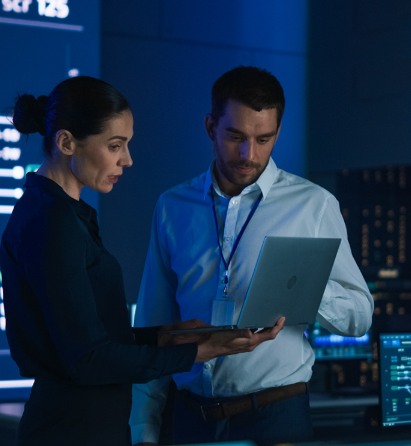Why Every Growing Organization Should Consider a Deputy CISO
- 254 Views
- admin
- 11/12/2024
- Cybersecurity
As organizations expand and the responsibilities of the Chief Information Security Officer (CISO) multiply, it becomes increasingly difficult for one individual to manage both strategic planning and day-to-day security operations. Enter the Deputy CISO—a role designed to complement and support the evolving duties of the modern CISO while ensuring operational excellence and leadership continuity.
The Expanding Scope of the CISO Role
CISOs today are expected to do more than oversee cybersecurity. Many are now also responsible for areas like infrastructure, IT service management, data governance, fraud prevention, and even physical security. These added layers, while critical, can dilute the CISO’s ability to focus on high-level strategy and business alignment. This is where the Deputy CISO becomes a game-changer—by handling the core security functions, they free up the CISO to focus on enterprise-level initiatives.
When Is the Right Time to Bring in a Deputy?
There are several indicators that it may be time to introduce a Deputy CISO:
- Expanded Responsibility: If the CISO is being stretched across multiple domains beyond cybersecurity, a Deputy can help maintain focus on core security efforts.
- Team Growth: Managing a large and complex security team requires more direct oversight than one leader can realistically provide.
- Succession Planning: A Deputy ensures continuity in the event of leadership changes and can be groomed to step into the CISO role if needed.
- Strategic Engagement Needs: As organizations mature, CISOs often need to engage more with external stakeholders, industry forums, or innovation strategies, making it essential to delegate operational oversight.
- Security Integration with Business: When security must be embedded across the organization, from development teams to customer service, a Deputy can serve as the connector, helping technical teams align with business goals.
The organization’s maturity and size will often dictate the need for a Deputy. In early-stage security programs, a CISO may manage with a small team. But as complexity grows, so does the need for a distributed leadership model.
What Makes a Great Deputy CISO?
The Deputy CISO must be a versatile leader with both technical acumen and strong communication skills. Their role is not only to manage security operations but to act as a bridge between the technical and business sides of the organization.
Key qualities include:
- Clear Communication: The ability to explain technical security concerns to non-technical audiences is vital.
- Strategic Insight: Understanding how security supports broader business goals helps prioritize the right initiatives.
- Leadership Development: Building a strong team by mentoring future leaders and encouraging professional growth.
- Cross-Functional Collaboration: Partnering effectively with other departments to embed security into product development and operational planning.
The Deputy should also possess the ability to interpret business risks through a security lens, translating them into actionable security programs that support the company’s mission.
Building a Strong CISO-Deputy CISO Partnership
A productive relationship between the CISO and Deputy requires more than just complementary roles—it demands mutual respect and open lines of communication. Several practices are essential to ensure this collaboration succeeds:
- Open Dialogue: Honest discussions about challenges, priorities, and approaches foster alignment.
- Trust and Empowerment: The CISO must empower the Deputy to take ownership and make key decisions.
- Role Clarity: Each leader should have a well-defined scope of responsibility to avoid overlap or confusion.
- Skill Transfer: Over time, the Deputy should be exposed to broader responsibilities, including representing the organization in high-level meetings.
- Unified Vision: A shared understanding of goals ensures that both leaders move in the same direction, even if they bring different perspectives.
In a successful setup, the CISO remains focused on strategy, external engagement, and innovation, while the Deputy manages the operational heart of the security function. This balance strengthens the overall program and prepares the organization for future challenges.
Security as a Business Enabler
As security becomes deeply intertwined with business operations, it’s no longer sufficient to treat it as a separate or reactive function. With a Deputy CISO in place, organizations can better integrate security into product development, customer experience, and operational planning. This integration accelerates innovation while safeguarding critical assets.
The ultimate benefit? A resilient and adaptable security program led by a cohesive team. With the Deputy handling operations and the CISO steering the strategic vision, companies can confidently navigate the complex threat landscape and stay aligned with their long-term business goals.
Recent Posts
- How AI is Revolutionizing Architectural Design: A Look at Tools, Trends, and the Future
- Streamlining Cyber Risk Assessments Through Automation
- Understanding the Difference Between Blockchain and Distributed Ledger Technology
- Is Bitcoin Mining Still a Viable Venture in 2025?
- Exploring AI: Unveiling Possibilities, Challenges, and Future Implications

